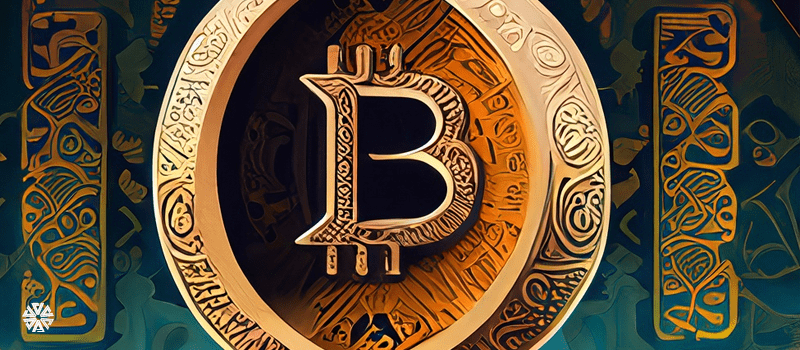Is Cryptocurrency Mining Halal? A Deep Dive into Bitcoin Mining and More
The meteoric rise of cryptocurrencies like Bitcoin and Ethereum has prompted much debate on their permissibility according to Islamic finance principles. Specifically, Muslim investors wonder if activities like cryptocurrency mining can be considered halal. This piece will provide an in-depth analysis of the issue from a sharia perspective.
Is Crypto Mining Halal?
Blockchain technologies like Bitcoin introduced a radical new paradigm for digital currencies. By distributing authority across decentralized networks, cryptocurrencies aim to enable peer-to-peer financial transactions without intermediaries.
However, Islamic scholars have expressed concerns on whether core tenets of cryptocurrencies align with established Islamic finance norms around riba (interest), gharar (excessive uncertainty), and maisir (gambling). A key question under debate is whether cryptocurrency mining – which validates network transactions – is permissible under sharia.
This piece will analyze various Islamic legal viewpoints around cryptocurrency mining to draw well-reasoned conclusions for Muslim investors.
Overview of Cryptocurrencies and Mining
Bitcoin, proposed in a 2008 whitepaper, is a decentralized digital currency powered by a technology called blockchain. Transactions occur peer-to-peer between users without banks or governments controlling the flow of money.
The blockchain uses an army of global miners to verify and record all transactions in a public, encrypted ledger. Mining involves using specialized hardware to solve complex cryptographic puzzles and add new transaction blocks to the chain. Miners earn small amounts of cryptocurrency as rewards for supporting the validation process.
Cryptocurrency Principles Through an Islamic Lens
To assess the permissibility of mining, we must analyze if core cryptocurrency principles align with Islamic notions around finance and money.
Riba (Interest)
Paying or receiving interest (riba) is prohibited in Islamic finance. Cryptocurrencies are designed without interest – transactions occur directly between peers without credit. Thus, cryptocurrencies themselves comply with riba prohibitions.
Gharar (Excessive Uncertainty)
Trades and contracts with excessive uncertainty violate Islamic principles. Some argue the extreme volatility of cryptocurrency prices constitutes excessive gharar. However, others state price fluctuations themselves do not make buying and selling cryptocurrency impermissible.
Maisir (Gambling)
Maisir refers to trades made on chance rather than skillful investment. Some equate cryptocurrency speculation to gambling. However, advocates argue miners provide value in return for rewards, rather than simply profiting on chance alone.
Positions on Cryptocurrency Mining Permissibility
Given the above analysis, is cryptocurrency mining halal or haram? Islamic scholars have expressed differing views.
Permissible Stances
- Mining solves cryptographic problems that secure blockchain networks with real utility. It is not a game of pure chance.
- Miners’ reward is proportional to efforts spent validating transactions. This qualifies as acceptable income.
- Blockchain facilitates non-riba finance and transparent, auditable records with useful applications.
Non-Permissible Perspectives
- Extreme price volatility of cryptocurrencies enables hyper-speculation similar to gambling.
- Power-intensive nature of mining conflicts with Islamic principles on protecting resources and the planet.
- Anonymity of cryptocurrencies can encourage money laundering, terror financing, and other crimes rejected in Islam.
Prudent Principles for Cryptocurrency Miners
Given the diversity of opinions, what practical guidance can we extract for Muslim crypto miners?
Adopt Responsible Mining Practices
Avoid wasting resources by prioritizing energy-efficient mining equipment and clean electricity sources. Donate a portion of mining proceeds to ethical causes.
Support Networks with Lawful Utility
Mine cryptocurrencies enabling privacy protection, non-profit finance access, supply chain transparency – real-world utilities benefiting society.
Remain Cautious Engaging Markets
Dollar cost average purchases over time. Do not invest with borrowed money. Seek dividends over pure speculation.
Difference Between Halal and Haram Cryptocurrency Mining in Islam:
Halal Cryptocurrency Mining:
-
Value Creation: Scholars like Mufti Muhammad Abu-Bakar and Mufti Faraz Adam view cryptocurrencies like Bitcoin as permissible due to their perceived value and availability as a currency.
-
Absence of Interest: Cryptocurrencies operate without interest, aligning with Shariah law principles that prohibit riba (interest).
-
Contractual Certainty: Under Shariah law, a valid contract requires an exchange of something that can be owned, stored, and traded, which cryptocurrencies fulfill by being real digital assets.
Haram Cryptocurrency Mining:
-
Uncertainty and Risk: Scholars such as Shaykh Shawki Allam highlight the high degree of uncertainty, risk, and potential fraudulence associated with cryptocurrencies, leading to concerns about their permissibility.
-
Lack of Regulation: The unregulated nature of the cryptocurrency space attracts dubious actors and illicit activities, raising ethical concerns among scholars regarding its compliance with Islamic principles.
-
Potential for Harm: Critics argue that cryptocurrencies can be used for illegal activities, funding terrorism, money laundering, and other nefarious purposes, which contradicts Islamic values.
-
Creation of Money from Nothing: Shaykh Haitham al-Haddad argues against cryptocurrency mining as it involves creating money from nothing, which he deems impermissible under Shariah law.
Final Thoughts
In summary, the difference between halal and haram cryptocurrency mining in Islam lies in factors such as value creation, absence of interest, contractual certainty for halal mining, versus uncertainty, risk, lack of regulation, potential harm, and creation of money from nothing for haram mining.
Scholars’ interpretations vary on whether cryptocurrency mining aligns with Islamic principles based on these distinctions and there is no unanimous ruling on cryptocurrency mining’s precise designation under sharia.
Pious Muslims must conduct personal research, enlightened debate on platforms like this to learn more. Sign up now and join the discussion.
The principles outlined here aim to guide believers towards wisdom and we hope you found it useful.




Responses